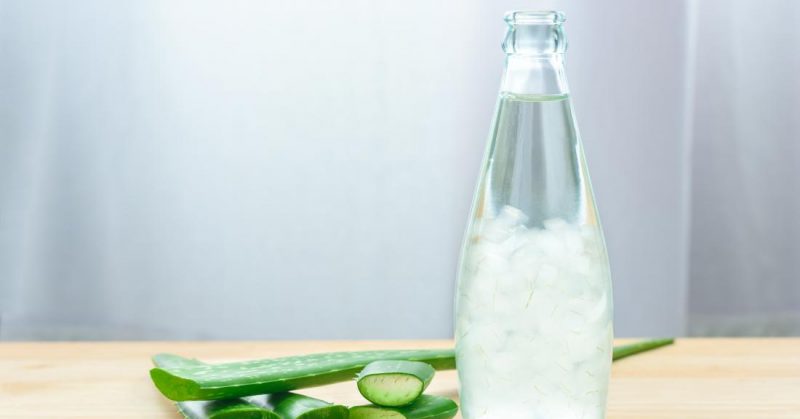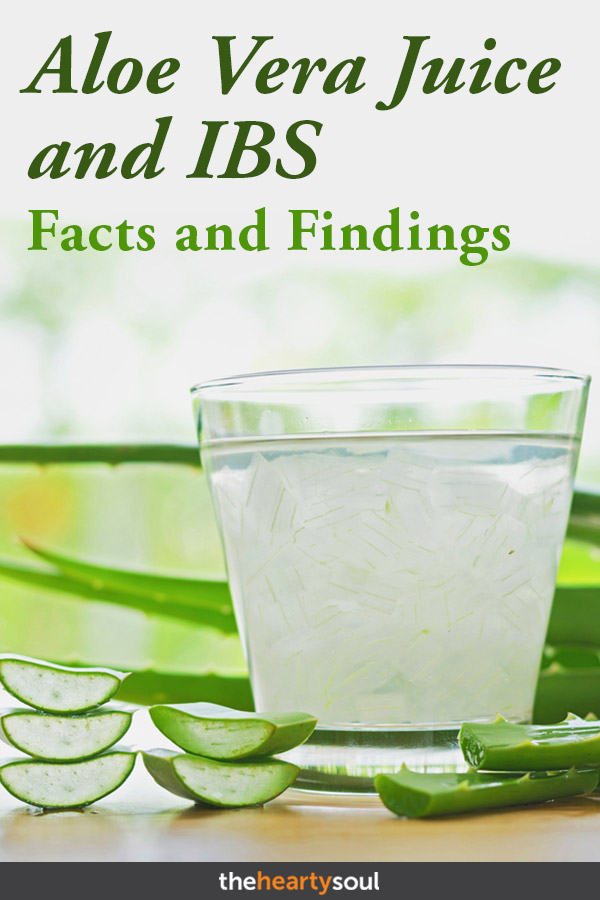This site contains product affiliate links. We may receive a commission if you make a purchase after clicking on one of these links.
Aloe vera is a common ingredient in soaps and moisturizers, but it may also have benefits for digestive problems. Some people have recently suggested that the consumption of Aloe vera juice might help with the treatment of irritable bowel syndrome (IBS). This article will discuss whether Aloe vera juice can be used to reduce the symptoms of IBS, as well as any possible side effects.
What is Aloe vera juice?

Aloe vera juice is popular as a refreshing beverage and for its potential health benefits.
Extracts from Aloe vera plants are widely used in alternative medicine and are thought to have a range of cosmetic and health benefits. Aloe vera is thought to have many benefits for skin health. Traditionally, Aloe vera leaves were used to treat wounds or burns.
It is now common for people to extract the gel from the leaves and use it to treat skin conditions, such as dermatitis, or moisturizers and soaps. Aloe vera gel is also an ingredient in toothpaste because of its anti-inflammatory and antibacterial properties. Aloe vera can be made into a juice using the green part of the leaf. This juice can act as a laxative and may be used to treat constipation or diarrhea.
We love Lily of the Dessert, Whole Leaf Aloe Vera Juice. There are over 200 biologically-active components like vitamins, enzymes, amino acids, and polysaccharides that are naturally found in aloe vera and offer overall great health benefits. Plus, with the addition of Aloesorb™, their aloe vera products can maximize the efficacy of those benefits. Lily of the Dessert, Whole Leaf Aloe Vera Juice has no water added and is made with 99.7% certified-organically grown aloe vera. Get your 30 day supply at The Health Shop for $17.73 while supplies last
Aloe vera juice and IBS
Aloe vera is thought to be useful for treating some of the symptoms associated with IBS, such as constipation and diarrhea. The anti-inflammatory properties of Aloe vera may help to reduce gastrointestinal inflammation, which can contribute towards IBS symptoms.
People with IBS typically manage their symptoms through lifestyle changes rather than medication. These changes can include adopting a diet with high levels of fiber or excluding foods that trigger symptoms, most commonly through a low FODMAP diet. FODMAPs are a type of carbohydrate that is difficult for the body to digest
However, it is unclear whether an official low FODMAP diet would include Aloe vera at this stage, and its use is controversial for several reasons. Very few studies have been conducted to determine the effectiveness of Aloe vera in treating IBS symptoms.
The first randomized controlled trial of Aloe vera as a treatment for IBS took place in 2006. People with IBS were either given Aloe vera supplements or a placebo for 3 months. Researchers found no benefit of Aloe vera supplementation in the treatment of IBS symptoms.
A more recent study involving 110 participants with IBS focused on quality of life. Researchers were again unable to find a significant difference between Aloe vera and a placebo substance for reducing IBS symptoms.
One trial found that Aloe vera had a positive impact on reducing abdominal pain and flatulence in people with IBS. However, this trial lacked a control group, meaning it was not possible to determine whether symptoms had improved as a direct result of the Aloe vera. Symptoms may have naturally improved over time or as part of a placebo effect.
Evidence supporting the use of Aloe vera to treat symptoms of IBS is currently lacking. More high-quality randomized controlled trials would be necessary to determine any benefits that Aloe vera may have for people with IBS.
We love Lily of the Dessert, Whole Leaf Aloe Vera Juice. There are over 200 biologically-active components like vitamins, enzymes, amino acids, and polysaccharides that are naturally found in aloe vera and offer overall great health benefits. Plus, with the addition of Aloesorb™, their aloe vera products can maximize the efficacy of those benefits. Lily of the Dessert, Whole Leaf Aloe Vera Juice has no water added and is made with 99.7% certified-organically grown aloe vera. Get your 30 day supply at The Health Shop for $17.73 while supplies last
Side effects

Abdominal pain and diarrhea are potential side effects of ingesting unpurified aloe vera juice.
Aloe vera juice can be either purified (decolorized) or unpurified (non-decolorized). The unpurified juice may cause adverse side effects, including:
- abdominal pain
- diarrhea
- dehydration or electrolyte imbalances
- low blood sugar levels
- allergic reactions
- interactions with other medications
Some research has linked unpurified juice with cancer after long-term use in animal studies, but it is not clear whether this is also the case for humans. Juices made with the whole leaf of the plant may contain latex and are more likely to produce adverse side effects. People should only drink this type of juice in small amounts.
The United States Food and Drugs Administration (FDA) does not regulate Aloe vera juice, so a person should only purchase it from a reputable source. Anyone experiencing side effects after drinking Aloe vera juice should speak to a doctor.
What is IBS?
IBS is a chronic condition that affects the digestive system. It can cause people to experience abdominal pain and bloating, excessive flatulence, diarrhea, and constipation.
The symptoms experienced and their severity can vary considerably from person to person. It is unclear what causes IBS, and the condition does not currently have a cure.
We love Lily of the Dessert, Whole Leaf Aloe Vera Juice. There are over 200 biologically-active components like vitamins, enzymes, amino acids, and polysaccharides that are naturally found in aloe vera and offer overall great health benefits. Plus, with the addition of Aloesorb™, their aloe vera products can maximize the efficacy of those benefits. Lily of the Dessert, Whole Leaf Aloe Vera Juice has no water added and is made with 99.7% certified-organically grown aloe vera. Get your 30 day supply at The Health Shop for $17.73 while supplies last
Takeaway
Aloe vera juice may help ease the symptoms of IBS, but more empirical research is required to support these claims. At present, there is an insufficient level of evidence to suggest that people with IBS should drink Aloe Vera juice to justify the risk of adverse side effects.
People who wish to try Aloe vera juice for IBS symptoms should ensure it is purified and consult a doctor before consumption.
Disclaimer: This information is not intended to be a substitute for professional medical advice, diagnosis or treatment and is for information only. Always seek the advice of your physician or another qualified health provider with any questions about your medical condition and/or current medication. Do not disregard professional medical advice or delay seeking advice or treatment because of something you have read here.


